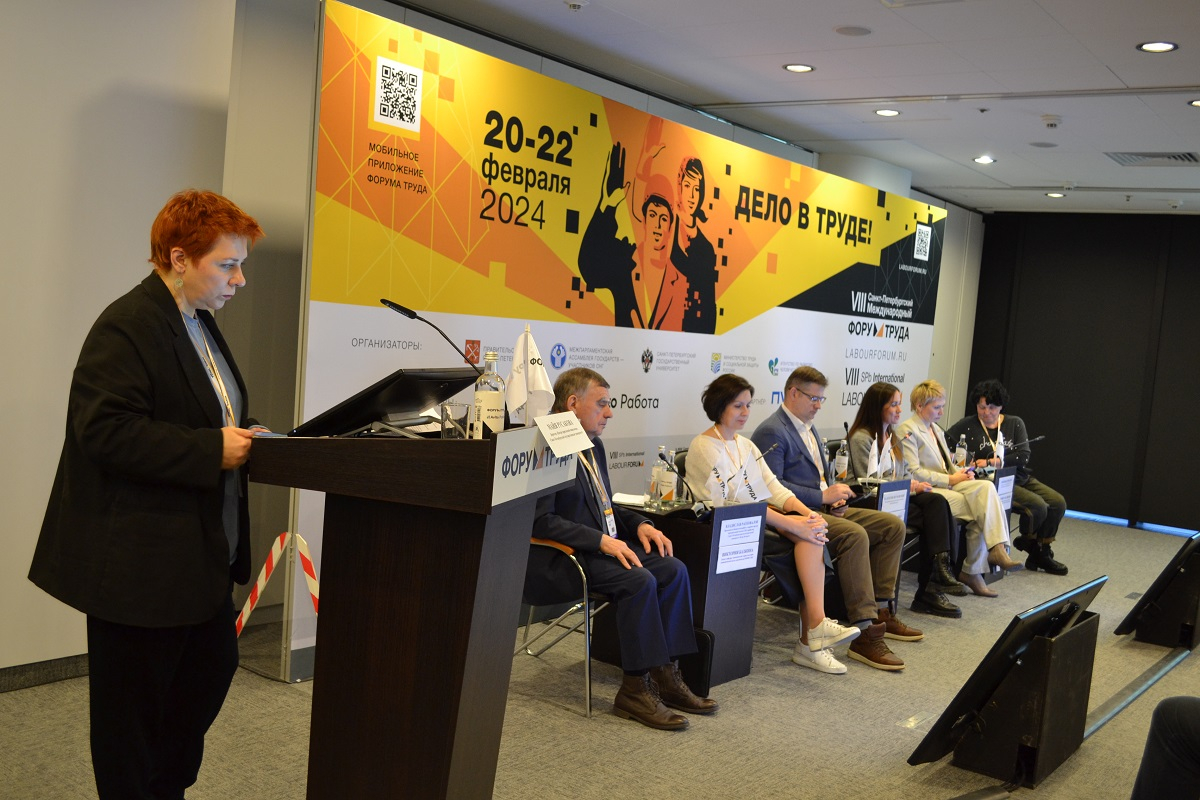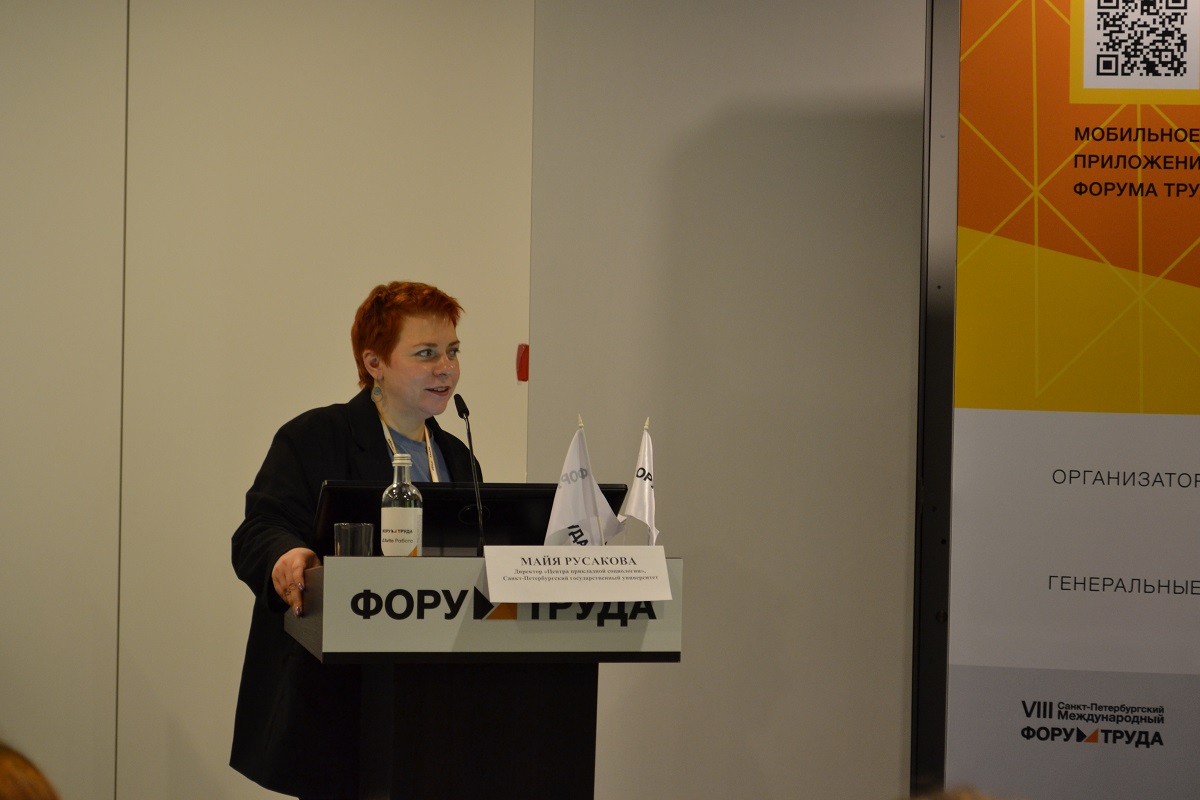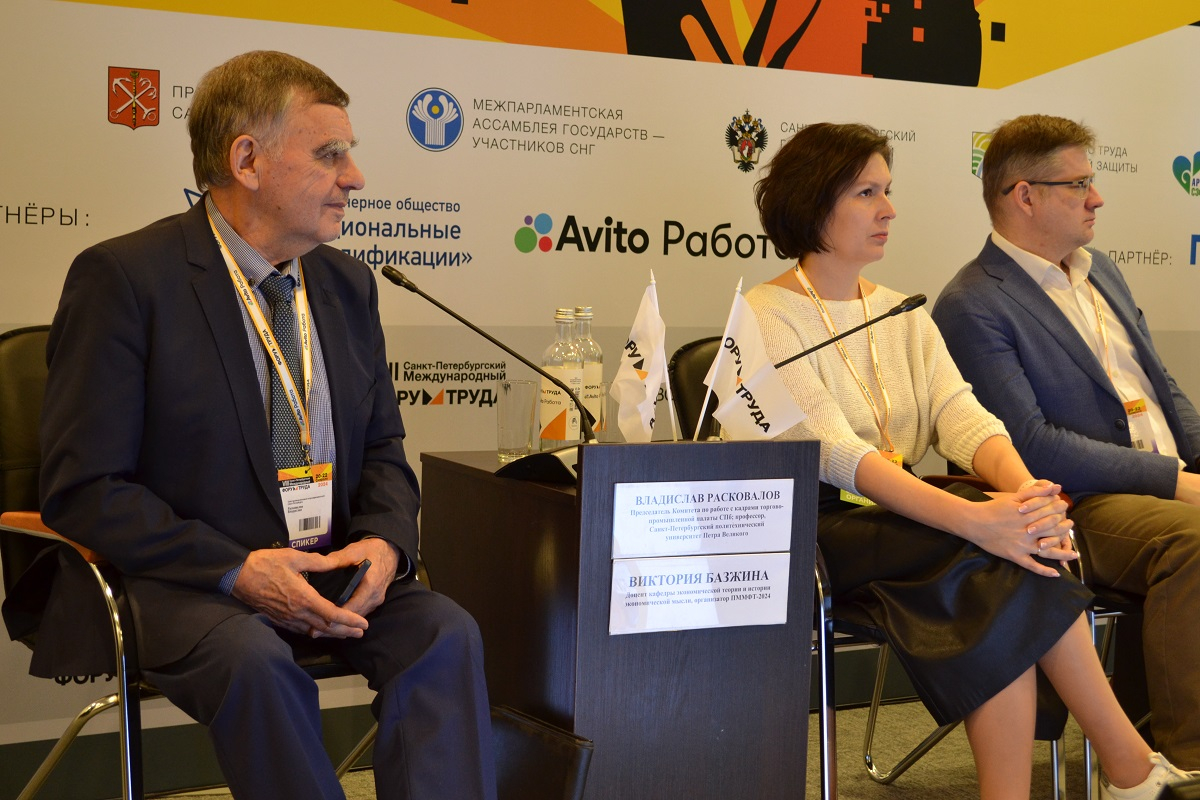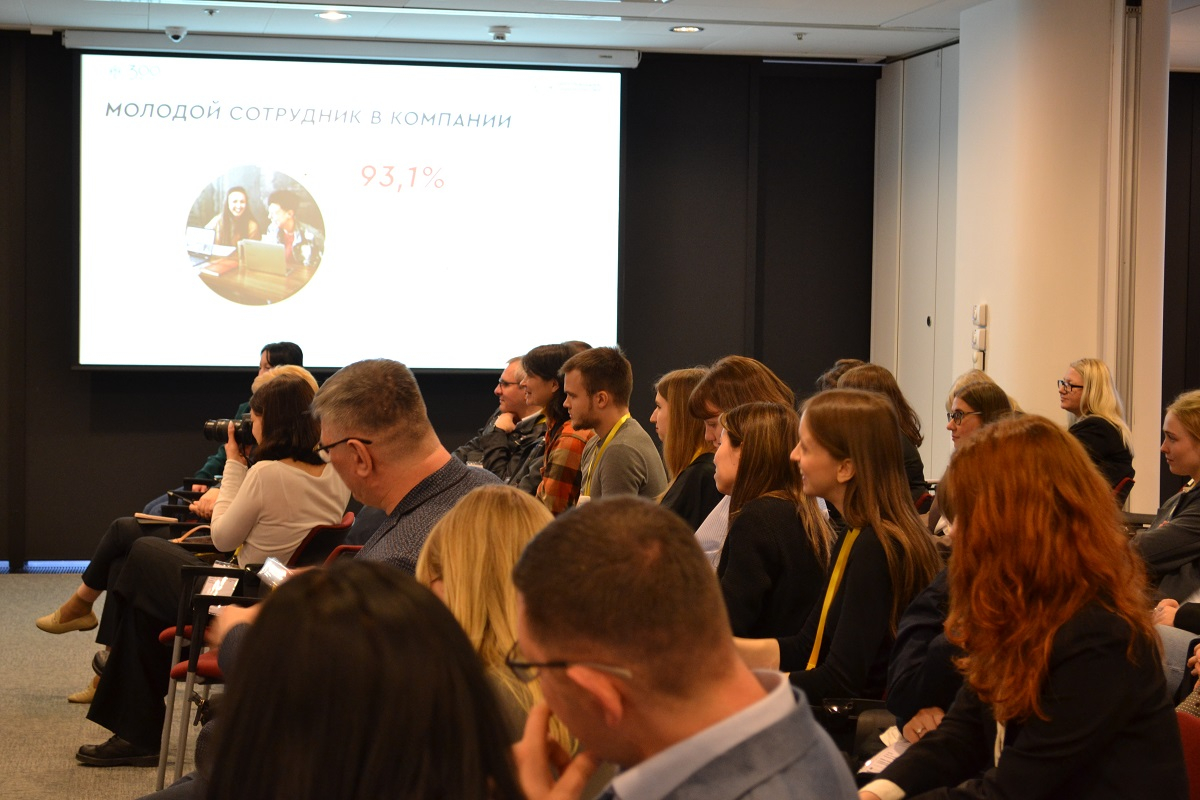St Petersburg University experts on the importance of human capital at the Labour Forum 2024
The 8th St Petersburg International Labour Forum has held the discussion ‘Human capital in the modern labour market: approaches, interpretations, changes’. Sociologists from St Petersburg University presented the results of the survey and explained how the concept of ‘human capital’ is changing and what strategies for the development of human capital are most relevant today.
Traditionally, human capital is perceived as a set of innate abilities and acquired knowledge, skills and motivations and, if effectively used, increase income and bring other benefits. According to the results of the study by the Centre for Applied Sociology at St Petersburg University, the term ‘human capital’ is familiar to 64.3% of the Russians surveyed. However, there is no common understanding of this definition, and employers therefore create the ways to develop human capital.
According to Maiia Rusakova, head of the sociological study and Director of the Centre for Applied Sociology at St Petersburg University, the way we interpret this concept has changed significantly. "For some, human capital is experience, i.e. the path that a person has travelled up to the present moment. Others mean a certain pool of talented people, i.e. passionaries.
For the third group of respondents, human capital is a combination of the physical, mental and moral aspects of a person’s life. On the one hand, such a difference in how we approach the concept of human capital complicates the labour market. On the other hand, it saturates the labour market with a variety of practices, and each of them is effective," said Maiia Rusakova, head of the study, Director of the Centre for Applied Sociology at St Petersburg University.
The concept of human capital among respondents is primarily associated with knowledge, value, education, skills, labour, population, resources, savings, country, and future.
During the discussion, panellists discussed what skills and qualifications are key for the economy and what strategies can contribute to the development of human capital in labour relations today.
According to the results of the survey conducted by the sociologists from St Petersburg University, 91.1% of Russians believe that in order to develop a person’s potential, it is important not only to enhance the level of education, but also to expand your circle of friends. According to the discussion participants, it is important to communicate with people who contribute to the development. This is what enables you to regularly develop human capital, expanding your range of interests and improving competencies.
Education plays a key role in the development of human capital, said Vladislav Raskovalov, Chairperson for Human Resources at the Committee of the St Petersburg Chamber of Commerce and Industry and the Russian Union of Industrialists and Entrepreneurs of St Petersburg, Professor of Peter the Great St Petersburg Polytechnic University.
I am sure that human capital begins to develop in your family, and then continues to develop through education. Education used to be for a lifetime. What is effective today is lifelong learning, which ensures that you are constantly acquiring and improving your skills to remain in demand.
Vladislav Raskovalov, Chairperson for Human Resources at the Committee of the St Petersburg Chamber of Commerce and Industry and the Russian Union of Industrialists and Entrepreneurs of St Petersburg, Professor of Peter the Great St Petersburg Polytechnic University
For young professionals today, an important aspect is also the atmosphere in the team. For 93.1% of the respondents aged 18 to 29, this is one of the most significant workplace factors. Yet, there is a shortage of young personnel in the labour market, said Victoriia Bazzhina, Associate Professor in the Department of Economic Theory and Economic Thought at St Petersburg University and a member of the organising committee of the St Petersburg Youth International Labour Forum.
"As part of the St Petersburg International Youth Labour Forum, we regularly collect feedback from students, learn about their problems in order to help find solutions. Many of them mention a lack of experience, although they may have gained some experience, yet they do not notice it or do not attach importance to it, considering only employment in their profession as experience, but forgetting about internships, practices and other ways of how you can get some practical experience," explained Victoriia Bazzhina.
The discussion on strategies for human capital development brought together Vladislav Raskovalov, Chairperson for Human Resources at the Committee of the St Petersburg Chamber of Commerce and Industry and the Russian Union of Industrialists and Entrepreneurs of St Petersburg, Professor of Peter the Great St Petersburg Polytechnic University; Valentin Shumovsky, a managing partner of the consulting agency "Kommunikanomika", moderator of teams and change leaders; Ilmira Malikova, a journalist, a radio host, a public speaking coach, and Associate Professor at the Academy of the Media Industry; Olga Dudnichenko, Director of Communications of the Corporate Well-Being Platform "Ponimau" (I Understand).
At the St Petersburg International Youth Labour Forum, St Petersburg University students have the opportunity to exchange experiences with representatives of employers and receive feedback from experts in their fields. Today, St Petersburg University actively involves partners in the teaching and learning process. Representatives of employers are part of academic programmes and can also suggest the topics of graduation projects. In 2023, out of 2,600 members of the state assessment committees at St Petersburg University, more than 1,700 are representatives of companies and employer organisations that evaluate learning outcomes.
The University implements a clinical approach in education, i.e. a format that makes it possible for young people, even during their student years, to solve real-life problems that are set by companies that are partners of St Petersburg University. During the 8th St Petersburg International Labour Forum, the University will open two more new clinics.





